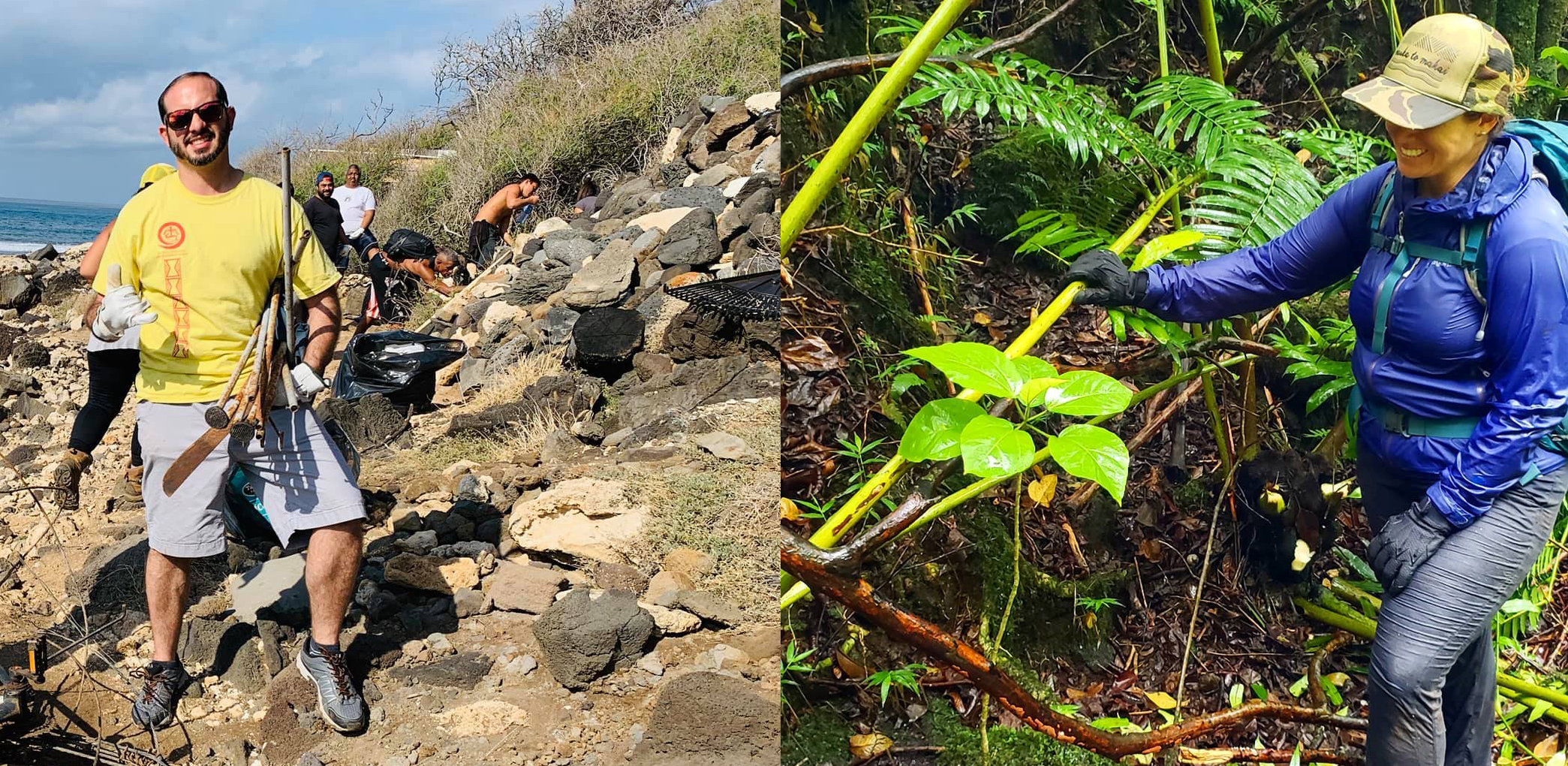Corporate Corner
The Institute for Sustainability and Resilience at the University of Hawaiʻi Mānoa received a boost from First Insurance Company of Hawaiʻi this year in the form of a scholarship for undergraduate students who are interested in studying and tackling climate change.
The institute was founded in 2018 with the goal of providing instruction, research and community outreach programs that relate to environmental sustainability and community resilience.
The First Insurance Scholarship in Climate Change will benefit two students each year. The recipients for the 2021-22 school year are Alejandro Silva, who is working toward a bachelor of arts degree in sustainability through interdisciplinary studies; and Serene Danielle Smalley, who is working toward a bachelor’s degree in sustainability with an emphasis on watershed resources management.
They are among 25 students majoring in sustainability, said Makena Coffman, director of the Institute for Sustainability and Resilience, who expects enrollment numbers in the program to increase. The institute’s first student is set to graduate this year, she said.
Coffman said sustainability studies prepare students for a range of future studies and occupations.
“First, a good foundation for a number of graduate programs,” she said. “Also, professionally, there are increasing needs to have people who have the perspective of human-environmental interactions.”
Coffman noted that more and more companies are hiring sustainability coordinators, people who can understand the broader impacts that climate change and sustainability can have on a business, as well as the community and the environment.
As an insurance company, FICOH is deeply invested in sustainability and climate change. The company is also a longtime supporter of UH and has donated to a number of programs, including the Shidler College of Business and the UH Cancer Center.
“It has definitely been a leader in climate change within the private sector in Hawaiʻi,” said Coffman. “Former CEO Jeff Shonka has been very proactive in engaging other people in the private sector around the topic of climate response.”
Shonka retired Aug. 31 after seven years at the helm of FICOH and was succeeded by Mark Yoda.
Two years ago, he moderated a panel on business risks relating to climate change at the Future Focus Conference, which talked about the role of markets, like banks and insurance, in areas identified at risk for sea level rise.
He also told the Hawaiʻi Environmental Funders Group for its “He Lono Moku, The State of the Environment,” that same year: “If you care about how much you pay for insurance, then you should care about climate change.”
In addition to offering a sustainability major, the Institute for Sustainability and Resilience recently broadened its reach within UH Mānoa by offering an undergraduate certificate in sustainability for students in other majors.
The certificate program is designed to complement a student’s primary field of study and expand their studies in such areas as understanding the interconnectivity of human and natural systems and the implications of sustainability problems and proposed solutions.
Coffman said the certificate has a slightly different focus than the major.
“The major is for the people who want to dive into the topic of sustainability and be the sustainability-focused person in an organization,” she said. “The certificate – whatever it is you’re doing – broadens your perspective on sustainability.”
-- Janis Magin
Updated:
Questions? / More Information
If you would like to learn how you can support UH students and programs like this, please contact us at 808 376-7800 or send us a message.
